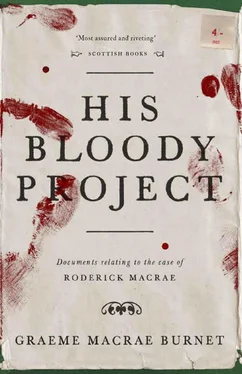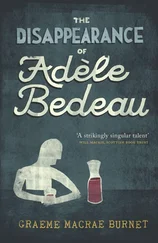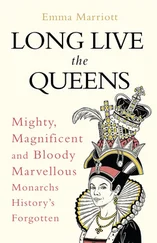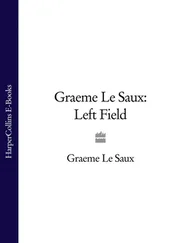Graeme Burnet - His Bloody Project
Здесь есть возможность читать онлайн «Graeme Burnet - His Bloody Project» весь текст электронной книги совершенно бесплатно (целиком полную версию без сокращений). В некоторых случаях можно слушать аудио, скачать через торрент в формате fb2 и присутствует краткое содержание. Год выпуска: 2015, Издательство: Contraband, Жанр: Современная проза, на английском языке. Описание произведения, (предисловие) а так же отзывы посетителей доступны на портале библиотеки ЛибКат.
- Название:His Bloody Project
- Автор:
- Издательство:Contraband
- Жанр:
- Год:2015
- ISBN:нет данных
- Рейтинг книги:5 / 5. Голосов: 1
-
Избранное:Добавить в избранное
- Отзывы:
-
Ваша оценка:
- 100
- 1
- 2
- 3
- 4
- 5
His Bloody Project: краткое содержание, описание и аннотация
Предлагаем к чтению аннотацию, описание, краткое содержание или предисловие (зависит от того, что написал сам автор книги «His Bloody Project»). Если вы не нашли необходимую информацию о книге — напишите в комментариях, мы постараемся отыскать её.
A brutal triple murder in a remote northwestern crofting community in 1869 leads to the arrest of a young man by the name of Roderick Macrae. There’s no question that Macrae is guilty, but the police and courts must uncover what drove him to murder the local village constable.
And who were the other two victims? Ultimately, Macrae’s fate hinges on one key question: is he insane?
His Bloody Project — читать онлайн бесплатно полную книгу (весь текст) целиком
Ниже представлен текст книги, разбитый по страницам. Система сохранения места последней прочитанной страницы, позволяет с удобством читать онлайн бесплатно книгу «His Bloody Project», без необходимости каждый раз заново искать на чём Вы остановились. Поставьте закладку, и сможете в любой момент перейти на страницу, на которой закончили чтение.
Интервал:
Закладка:
I carried out a detailed inspection of the subject’s cranium and physiognomy. The forehead and brow were large and heavy, while the skull was flat on top and markedly obtruding to the back. On the whole, the cranium was quite mis-shapen and not dissimilar to many of those I had examined in my capacity as prison surgeon. The ears were considerably larger than average, with large, flattened lobes.‡‡
‡‡ As a point of interest for the future development of Criminal Anthropology, it might prove to be of great value for a study to be made of analogous structures in the physiology of criminals who have had no contact through interbreeding. [Footnote in original.]
As to the visage: the eyes, as already noted, were small and deep-set, but alert and darting. The nose was protuberant, though admirably straight; the lips thin and pale. Likewise, the cheekbones were high and prominent as, has recently been pointed out, is often the case among the criminal breed. The teeth were quite healthy and the canines not preternaturally developed.
R— M— thus shared a certain number of traits with the inmates of the General Prison (these being chiefly, the mis-shapen cranium, unappealing facial features, pigeon chest, elongated arms and ears). In other respects, however, he was a healthy and well-developed specimen of the human race and if one were to observe him in his natural environment, one would not instinctively mark him out as a member of the criminal class. From this point of view, he formed an interesting subject and one which I was curious to study further.
I allowed the prisoner to dress and put a few simple questions to him. He was entirely unresponsive. He appeared at times not to have heard my questions, or pretended not to have done so. I suspect he was well aware of what was being asked, but refused to answer, for motives of his own. Such a strategy did, however, suggest that the subject was not an outright imbecile and was capable of some reasoning, flawed or otherwise. Nevertheless, I saw no purpose in prolonging my enquiries in the face of this stubborn attitude, and had the gaoler release me from the cell.
Mr Sinclair was waiting outside and questioned me impatiently as soon as I emerged. His manner was less that of a professional man than of a nervous parent eager for information about his child’s health. As we advanced along the passage I outlined my findings to him.
‘But as to his state of mind?’ he asked.
I was aware that the advocate was anxious for me to pronounce on this question, so that he might offer a plea of insanity to the court, thus saving his client from the gallows, and perhaps not incidentally garnering a good deal of renown for himself. Nevertheless, at this point, I refused to venture an opinion.
I explained that as a man of science, I could not be guided by speculation or conjecture. What matters, I told him, are facts — facts and instances!
‘Your client exhibits a number of the physiological characteristics of the criminal class with which my work has acquainted me. However, while he might share some of their features, without acquainting myself with the stock from which he has issued, I cannot venture an opinion as to whether he has acquired these traits through heredity. If one’s cup of water is foul, one must first ascertain if the well is poisoned. If we find that the well is indeed polluted, it may have some bearing on whether or not he is responsible for his deeds.’
We had reached the end of the evil-smelling passage along which we had been walking and paused in our conversation while the gates were opened for us. Mr Sinclair, cowed by the superiority of my knowledge and intellect, assumed a more deferential manner. We continued in silence to the outer gate and, once released, breathed deeply of the warm summer air.
We then, at my suggestion, proceeded to the inn as I wished to put some questions to the advocate. When we were settled at a table with some refreshments, Mr Sinclair asked what I proposed to do. I told him we would revisit the gaol the following day in order for me to continue my examination of the prisoner.
‘Then,’ I said, ‘we must check the well.’
Mr Sinclair did not grasp my meaning.
‘We must,’ I explained, ‘pay a visit to whatever God-forsaken shanty the wretch has sprung from.’
‘I see,’ said the advocate, in a tone suggesting that the prospect of such an expedition did not greatly appeal to him.
‘What,’ I enquired, ‘do you know of your client’s background?’
Mr Sinclair took a long swallow of ale, no doubt gratified to be asked to furnish me with some information.
‘His father is a tenant farmer — a crofter — of good character. His mother was a respectable woman who died in child-bed a year or so hence. There are, or were, three siblings, an elder sister and much younger twins.’
‘“Were”, you say?’
‘The sister was found hanged in an outbuilding on the evening of the murders.’
I paused for a moment in my questioning. This information was certainly pertinent to my investigation.
‘And was this sister of sound mind prior to this event?’ I asked.
‘I cannot say,’ he replied. ‘In the confusion following the murders, her absence was not noticed for some time. A search was made and she was found, as I say, in the barn. The coroner was unable to establish a precise time of death.’
I nodded slowly. The existence of a suicide did not speak well of the family’s psychological constitution. Furthermore, in our day and age, for a woman to die in child-bed is likely indicative of some congenital weakness. In short, the picture emerging was not of a robust and healthy tribe.
‘And of the younger siblings?’
‘I know nothing,’ replied the advocate, slowly shaking his head. ‘They are no more than infants.’
‘And what evidence do you have of the father’s good character?’
‘Only what I have learned from my conversations with R—.’
‘My point precisely,’ I replied. ‘I am sure you would agree that we cannot accept the words of a devious and violent individual like your client. We must attempt to establish the truth about his background in an objective manner. Facts and instances, Mr Sinclair! It is to these we must attend.’
He protested that he had not found his client to be in the least bit devious, but I waved away his objections.
‘We shall depart for this Culduie the day after tomorrow. I shall leave the arrangements to you.’
Mr Sinclair asked if he might dine with me that night, but, knowing that we would be passing a great deal of time in each other’s company in the following days, I refused. I sent word to the prison in Perth that I would be absent for some days and wrote to my wife informing her of the same. I then perused a dossier of witness statements and medical reports, which Mr Sinclair had provided, and compiled my notes of the day’s events. I took my evening meal in my chamber, not wishing to associate with the habitués of the public rooms, who recalled all too keenly of the inmates of my own institution. The meal was quite adequate and I drank enough wine to counteract the effects of the uncomfortable mattress and the sounds of carousing from below.
The following day I instructed Mr Sinclair to have a hearty meal and bottle of wine delivered to the prisoner from a local inn. The advocate informed me that he had often proposed to have meals brought to his client, but these offers had, on every occasion, been refused. This was not, I advised him, because the prisoner did not want the meal; it was because he did not wish to place himself in his advocate’s debt. Acts of honest kindness are so alien to members of the criminal classes that they are invariably met with suspicion. However, my own proposal, I am compelled to admit, was not made out of kindness. It has been well established that hunger can induce in a prisoner a state of restiveness, irritability or even aggression. When I arrived, I wished R— M— to be in a state of indolence induced by the rich food he had consumed, and thus be in a frame of mind more conducive to interrogation. The meal was to be delivered at noon and I arranged to meet Mr Sinclair at the gaol at one o’clock, by which time I calculated that the victuals would have taken proper effect.
Читать дальшеИнтервал:
Закладка:
Похожие книги на «His Bloody Project»
Представляем Вашему вниманию похожие книги на «His Bloody Project» списком для выбора. Мы отобрали схожую по названию и смыслу литературу в надежде предоставить читателям больше вариантов отыскать новые, интересные, ещё непрочитанные произведения.
Обсуждение, отзывы о книге «His Bloody Project» и просто собственные мнения читателей. Оставьте ваши комментарии, напишите, что Вы думаете о произведении, его смысле или главных героях. Укажите что конкретно понравилось, а что нет, и почему Вы так считаете.












